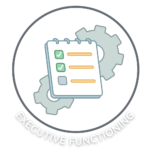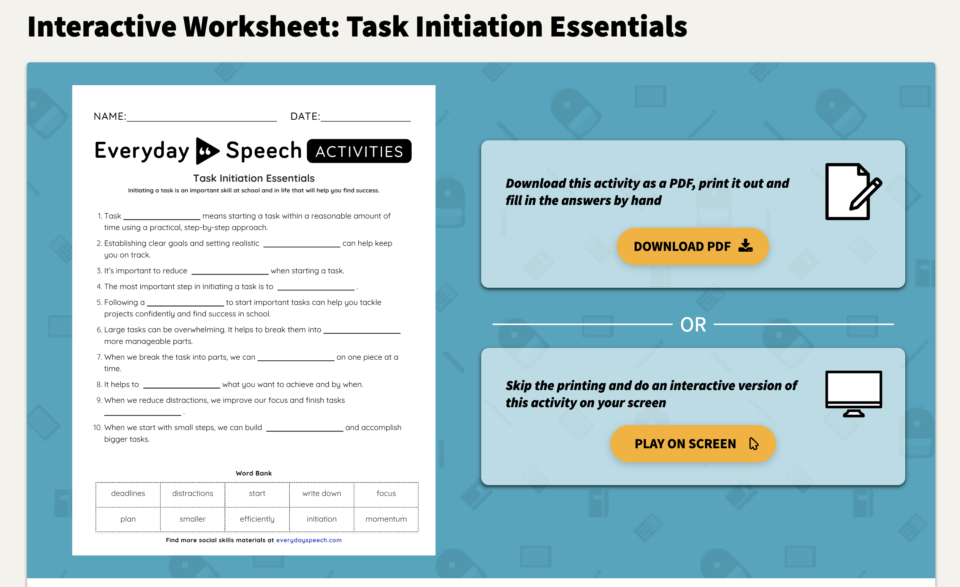
Task initiation stands out as a critical skill for students, especially in middle school. This ability to start tasks promptly without procrastination is pivotal for academic success and overall well-being. For special education teachers, instilling this skill in students can be both challenging and rewarding. This blog post is dedicated to offering a comprehensive guide, including a free interactive or printable PDF worksheet, to support teaching middle schoolers task initiation effectively.
The Significance of Task Initiation
Task initiation is more than just the beginning of a task; it’s the gateway to learning, achievement, and self-efficacy. Middle school students, particularly those with unique executive functioning needs, often face unique challenges that can hinder their ability to start tasks independently. By focusing on task initiation, teachers can empower students to overcome these barriers, fostering independence, confidence, and a proactive mindset.
Introducing the Task Initiation Worksheet
To aid in this educational endeavor, check out the interactive or printable PDF worksheet with a free, 30-day trial, designed to make learning about task initiation engaging and accessible. This fill-in-the-blank worksheet, complete with a word bank, helps students identify strategies for overcoming procrastination and initiating tasks effectively.
Lesson Plan: Kickstarting Task Initiation
Objective: Students will learn and apply strategies for initiating tasks to improve their ability to begin assignments independently and efficiently.
Materials: Task Initiation Essentials (Free with 30-day trial), pens or pencils.

Choose to play interactively on a digital whiteboard or print the PDF worksheet.
Activity 1: Understanding Task Initiation (15 minutes)
- Introduction: Start with a discussion on what task initiation means and why it’s important. Ask students to share experiences of when they found it hard to start a task and what helped them to finally begin.
- Worksheet Completion: Distribute the Task Initiation Worksheets. Guide students through filling in the blanks using the word bank, emphasizing strategies that facilitate task initiation.
Activity 2: Real-Life Application (15 minutes)
- Individual Task: Assign a simple, short task to each student that they can complete within the class period. Encourage them to apply one of the strategies they’ve learned to initiate the task.
- Reflection: After completing the task, students reflect on the strategy they used and its effectiveness.
Conclusion (5 minutes)
- Recap the importance of task initiation and how it can impact academic success and daily life. Encourage students to continue practicing the strategies learned and to utilize the worksheet as a reference.
Conclusion
Teaching middle schoolers task initiation is a vital step in preparing students, especially those in special education, for academic success and lifelong learning. By using targeted strategies and resources like our free Task Initiation Worksheet, educators can provide students with the tools they need to overcome procrastination and embrace challenges with confidence. Remember, the goal is not just to complete tasks but to cultivate an empowered and proactive approach to learning and life.
Unlock your free material for this lesson by signing up for your free trial today – no credit card required!
Access your free materials now!
Instant access to thousands of no-prep social skills activities, over 800+ video lessons, and engaging games designed to enhance learning and development.
Sample Video
Students learn best from watching real students their own age model skills. Try out this sample video-modeling lesson below. We offer our entire Social-Emotional Learning platform free for 30 days here!
Related Blog Posts:
Changing the Channel on Big Emotions: A Guide for Educators
Social Emotional Learning Curricula for All – Tiers 1, 2, and 3







